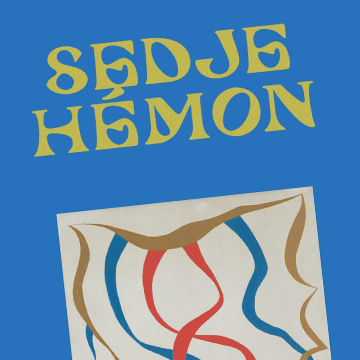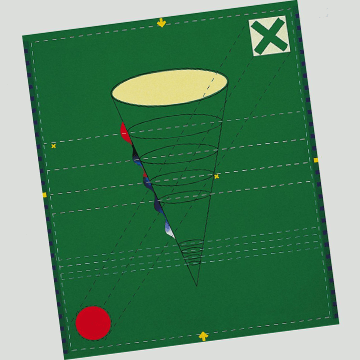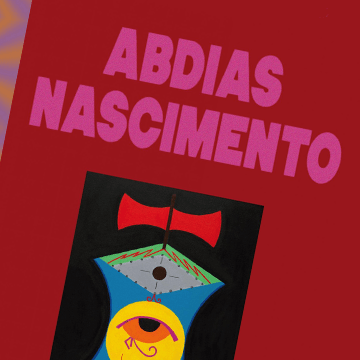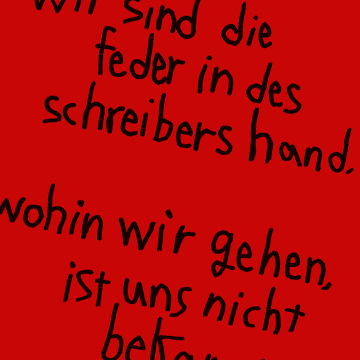Sedje Hémon (1923-2011) dedicated her life to showing the common origin and intersectionality of all arts and sciences, culminating in the development of a theory for the “integration of the arts.”
Tag: artist
Imran Mir – A World that is not Entirely Reflective but Contemplative
Imran Mir's (1950-2014) oeuvre can be interpreted as a constant refusal to provide comprehensive elaboration beyond what one experiences. The act of contemplation is a guiding principle to interpreting Imran Mir’s work, an approach that reverberates into a practice that grew out of conversations with a community of artists, activists, poets, relatives, and other thinkers in Karachi.
Abdias Nascimento – Being an Event of Love
Abdias Nascimento (1914-2011) was a story-teller whose mediums of expression embraced as many forms as they could, borrowing the paths at hand to communicate ideas and reflect on the urgencies of his time and place.
Afro-Sonic Mapping
From his longstanding engagement to “un-mute” colonial sound collections captured during the European colonial period, Satch Hoyt’s practice has been dedicated to intervene those collections and awake their sonicity, releasing phonogram recordings and instruments of different regions in Africa from the museological silence. For Hoyt, the sonic opens a portal to the acoustic mappings of history – testimonies of enslavement, resistance, empowerment and liberation, and also the amalgamations of today and the future.
wir sind die feder in des schreibers hand, wohin wir gehen, ist uns nicht bekannt Farkhondeh Shahroudi
This is the first monographic overview publication of the work of Farkhondeh Shahroudi. Long overdue, but in the accurate context of the Hannah Höch Support Award, which the artist received on the 1st of November 2022 in Kupferstichkabinett Museum Berlin, generously supported by the Senate Department of Berlin for Culture and Europe.
Lerato Shadi
We are delighted to be able to introduce Lerato Shadi’s first monograph. In her work, it is the marginalized that Shadi puts centre stage, negotiating bodies discriminated against in racist, sexist or classist ways, along with the experiences inscribed in them. Employing different media, Shadi addresses issues of institutional violence, patriarchal and colonial strategies of exclusion and erasure but also highlights resistant subjective narratives.





